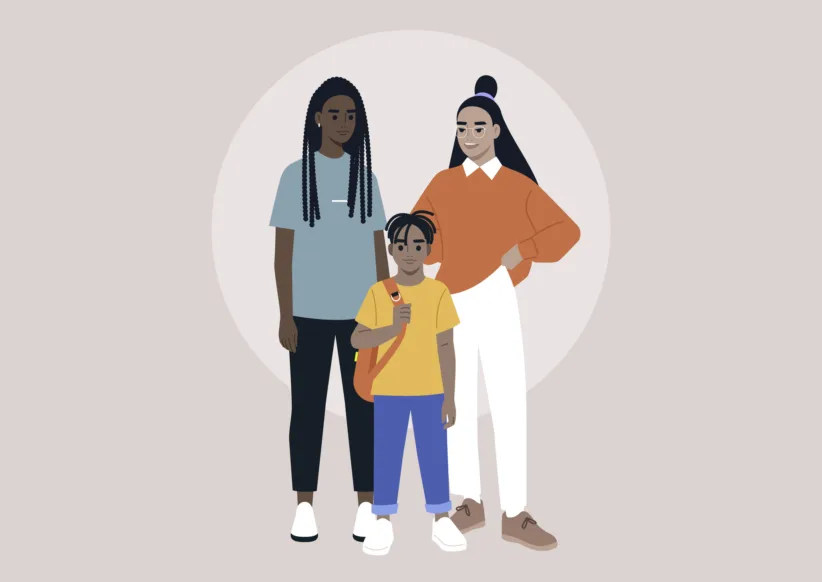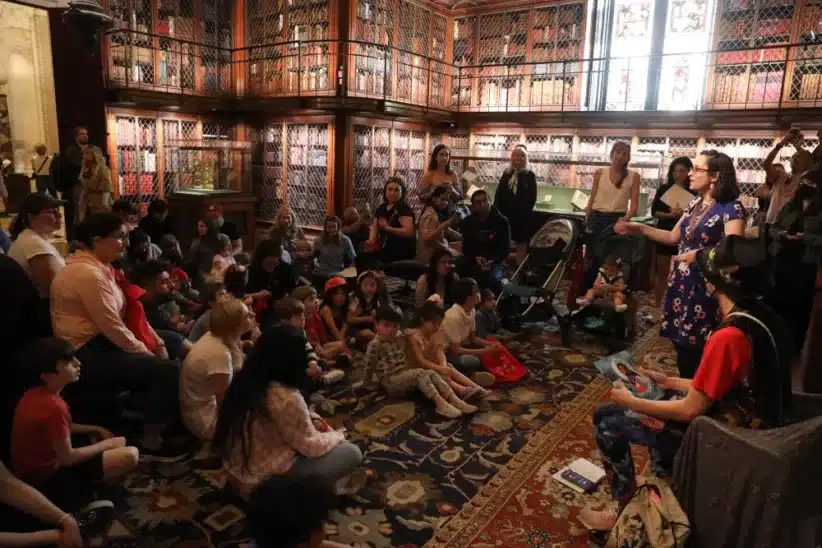Everyone wants their child to make good friends, but as a parent it can be difficult to understand what your role is in nurturing these relationships. If your 5-year-old has difficulty making friends at school, do you step in and help out? What does it mean if your tween daughter has just one close friend rather than a whole group? In her book, “Making Friends,” author Elizabeth Hartley-Brewer explores the nature of children’s friendships from ages 0 to 12, and the importance they play in their development. She addresses some of parents’ most common concerns here.
At what age do children start making their first friends?
A very young child can become obviously fond of, and attached to, a special child whom he sees frequently from the age of 1. However, they won’t “make” their first friend until they’re around 5. Before then they may describe or identify someone as a friend, but won’t have much idea of what this label means.
How do friendships change and mature from then on?
Five to 7-year-olds will choose friends with a similar sense of humor and interests, someone who makes them giggle, who they can have fun with and who is kind.
They change their friends frequently because they tend to think in the here and now. Eight-to-10-year-olds become really hungry for friends, demand more from them, and need to choose their own friends who they think are like them. Friends become the sign of approval and they care deeply what friends think. Tweens’ friendships focus on loyalty, playing fair, sharing, trust and listening respectfully.
What role do friendships play in a child’s development and happiness?
We now know from recent studies that friends shape children’s lives significantly. Apart from making life more fun, on a psychological level friends help a child to feel accepted, which aids their confidence and self-esteem. Friends are important on a practical level, too. Children learn how to compromise and manage conflict; when to be straightforward and when to deploy tact; how to give and take; show understanding; and how to share.
Are some children better at making friends than others?
It would seem so—or at least some children’s natural personality makes them immediately attractive to a wide range of their peers. There are also helpful skills: As children get older, if they’re able to share, take turns, compromise and accept that they don’t always get their way, they will find it easier both to make and keep friends. We shouldn’t forget that different skills are needed for making and for keeping friends. Children who are more confident may find it easier to make friends, yet a quieter child may forge a deeper friendship once he bonds with someone and the friendship may last longer because they understand each other better.
What are signs that a child has trouble making or keeping friends? When should a parent be worried?
A younger child may be happy to watch others playing because he’s building up his confidence and watching how it’s done. And some individuals like to be quiet and alone some of the time while they recharge or explore ideas in
their head. However, sometimes a child wants friends and doesn’t have any, or is frequently rejected and will be sad, lonely and sometimes very grouchy as a result. Trouble may be brewing if your child becomes unusually tearful, clingy or aggressive; if he develops strange aches and pains and tries to avoid going to school; if he reverts to nail biting or bedwetting; or if he wants to spend too much time alone. Your first step if you are worried could be to check with the teacher about what might be happening and ask for some advice.
What are the key differences between friendships among boys and girls?
Boys’ friendships tend to be based on action and activities—sports, computer games, music. Boys typically form larger groups of friends with no one being obviously special. They don’t talk and gossip as much as girls and they’re more direct and less manipulative. They may fight and compete with each other, but they can be fiercely loyal, which generally means they don’t tell on friends who’ve done something wrong.
Girls form more intense friendships. They huddle together in smaller groups and are more “cliquey.” They spend far more time talking and discussing rather than doing, especially once they become tweens. Girls are famously fickle and notoriously nasty, fighting with words rather than with fists. Yet they can also be extremely sensitive and caring if a close friend has a personal problem.
Should a parent step in if they think their child is friends with someone who isn’t good for them?
In general, I’d say parents should stay well clear of friendship trials and tribulations. Children choose friends who meet their needs at that time and once they reach age 7 or 8 they must be free to choose their own
friends, undirected by parents. Even those you consider “undesirable” could be fulfilling some need— to be naughty because they can’t be naughty at home; to see what it’s like to take risks and be adventurous because they’re feeling bold. Most children will find their own way through, learning more about themselves on the way.





















